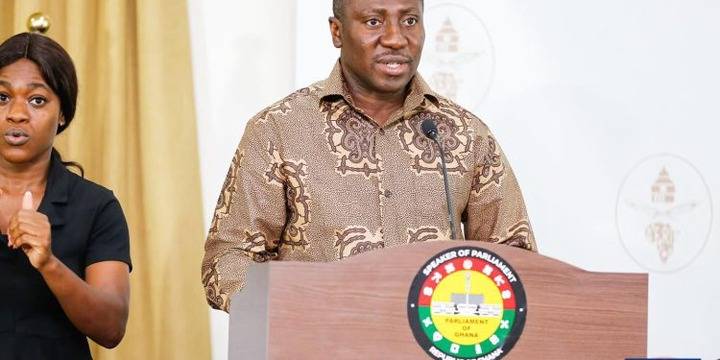Minority Leader Cites Survey Data and Broken Promises as Evidence of Fading Public Trust in Government
The Minority Leader in Parliament, Alexander Afenyo-Markin, has publicly raised alarms over a documented decline in public confidence regarding the performance and direction of the Mahama administration. Speaking at a Leaders' Media Briefing in Parliament on Wednesday, October 22, 2025, the lawmaker presented survey data to back his assertion that the government is failing to deliver on its foundational promises and adequately address Ghana’s economic challenges.
Mr. Afenyo-Markin anchored his concerns in a recent analysis by Global InfoAnalytics, which tracked shifts in public opinion between July and September 2025. The figures, he argued, show a clear and worrying downward trend in public optimism.
The Data Behind The Dip in Public Trust
The Minority Leader meticulously detailed the deterioration of key public sentiment indicators:
Direction of the Country: The percentage of Ghanaians who believed the country was heading in the "right direction" saw a significant drop, falling from 71% in July 2025 to 66% in September 2025. Conversely, the proportion of citizens who felt the country was moving in the "wrong direction" climbed from 20% to 23% over the same period.
Government Job Approval: The approval rating for the government's overall performance experienced a noticeable slump, declining from 73% in July to 67% in September. The corresponding disapproval rating concurrently rose to 22%.
Performance Rating: When citizens were asked to rate the government’s performance as 'very good' or 'good,' the favourable response rate dropped from 61% to 54%. In contrast, those rating the performance as 'poor' or 'very poor' increased from 10% to 16%.
Afenyo-Markin concluded that this "consistent downward trend" is irrefutable evidence that Ghanaians are losing faith in the administration’s capacity to manage national affairs effectively.
Failure to Honour Campaign Commitments
Beyond the statistical data, the Minority Leader attributed the waning public confidence to the administration’s apparent failure to honour crucial campaign promises and its introduction of punitive economic policies.
He specifically pointed to four key areas of government action and inaction that he believes have betrayed public trust:
Retention of the COVID-19 Levy: Despite a promise by the administration to abolish the levy, it remains in force, burdening taxpayers.
Introduction of New Taxes: The government, which previously criticized the E-Levy while in opposition, has now introduced a new financial levy, the D-Levy, effectively contradicting its prior stance on 'nuisance taxes.'
Multiple Utility Tariff Hikes: The promise of economic relief has been countered by two consecutive utility tariff increases within the current year alone.
Inadequate Infrastructure and Employment: The failure to deliver adequate infrastructural projects and the inability to tackle the persistent issue of rising youth unemployment have compounded the public’s frustration.
Call for Urgent Corrective Action
Afenyo-Markin criticized what he termed the government's focus on "rhetoric over results," issuing a stark warning that the deepening public dissatisfaction could ultimately erode citizen trust in Ghana’s democratic institutions. The optimism that characterized the early months of the administration is rapidly being replaced by scepticism, with citizens growing increasingly impatient for tangible economic relief and governance improvements.
The Minority Leader urged the government to heed the clear message from the data by immediately undertaking urgent corrective measures. He stressed that the administration must prioritize honouring its commitments and implementing policies that genuinely translate into economic relief for the average Ghanaian to stand any chance of restoring the public's quickly fading confidence.




No comments yet
Be the first to share your thoughts!